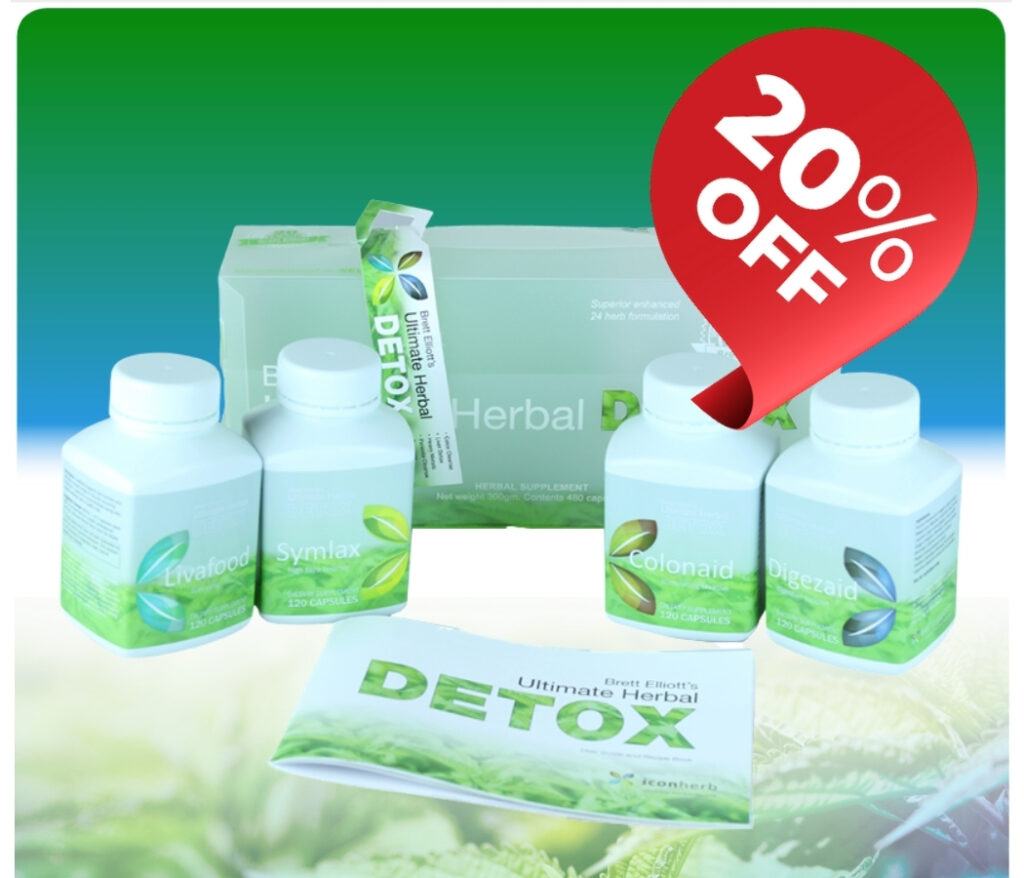Are you looking for a natural way to cleanse your body and revitalize your health? Look no further than “The Ultimate Guide to Herbal Detox.” In this comprehensive article, you will discover the incredible power of herbal remedies in removing toxins from your system. From soothing teas to potent tinctures, we’ll explore a wide variety of herbs that can support your body’s natural detoxification processes. Get ready to embark on a journey towards a healthier, more vibrant you with the help of herbal detox.
1. What is Herbal Detox?
– Definition of herbal detox
Herbal detox refers to the process of using various herbs and natural ingredients to cleanse and eliminate toxins from the body. It involves the consumption of herbal teas, juices, supplements, and the practice of sweating therapies or colon cleansing methods to promote the body’s natural detoxification processes.
– How does herbal detox work?
Herbal detox works by supporting and enhancing the body’s natural detoxification systems. The herbs and natural ingredients used in detox methods stimulate the liver, kidneys, and intestines to eliminate toxins and waste products more efficiently. They can also help to balance the body’s pH levels, improve digestion, and boost the immune system.
– Benefits of herbal detox
There are several benefits of herbal detox. Firstly, it helps to remove harmful toxins and waste materials from the body, which can improve overall health and well-being. Herbal detox can also boost energy levels, enhance mental clarity, and promote better digestion. Additionally, it may support weight loss, improve skin health, and strengthen the immune system.
2. Types of Herbal Detox Methods
– Tea detox
Tea detox involves the consumption of herbal teas specifically formulated for detoxification purposes. These teas are often made from a combination of detoxifying herbs such as dandelion, burdock root, ginger, and green tea. Tea detox can help to cleanse the liver, aid digestion, and promote overall wellness.
– Juice cleanse
Juice cleanse is a popular detox method that involves the consumption of freshly squeezed fruit and vegetable juices for a specific period of time. During a juice cleanse, solid food is eliminated, and the body is nourished with nutrient-dense juices. This allows the digestive system to rest while providing essential vitamins, minerals, and antioxidants.
– Herbs and supplements
Herbs and supplements are commonly used in herbal detox methods to support the body’s natural detoxification processes. Some commonly used herbs include milk thistle, turmeric, cilantro, and garlic. These herbs can help to promote liver health, reduce inflammation, and support the elimination of toxins.
– Colon cleansing
Colon cleansing or colon hydrotherapy is a detox method that involves the cleansing of the colon using water or herbal enemas. This helps to remove waste, toxins, and stagnated fecal matter from the colon, promoting better digestion and overall detoxification.
– Sweating therapies
Sweating therapies such as saunas, steam rooms, and hot baths are another way to aid in the detoxification process. Sweating helps to eliminate toxins through the skin, thereby supporting the body’s detoxification pathways. These therapies also promote relaxation and stress reduction.
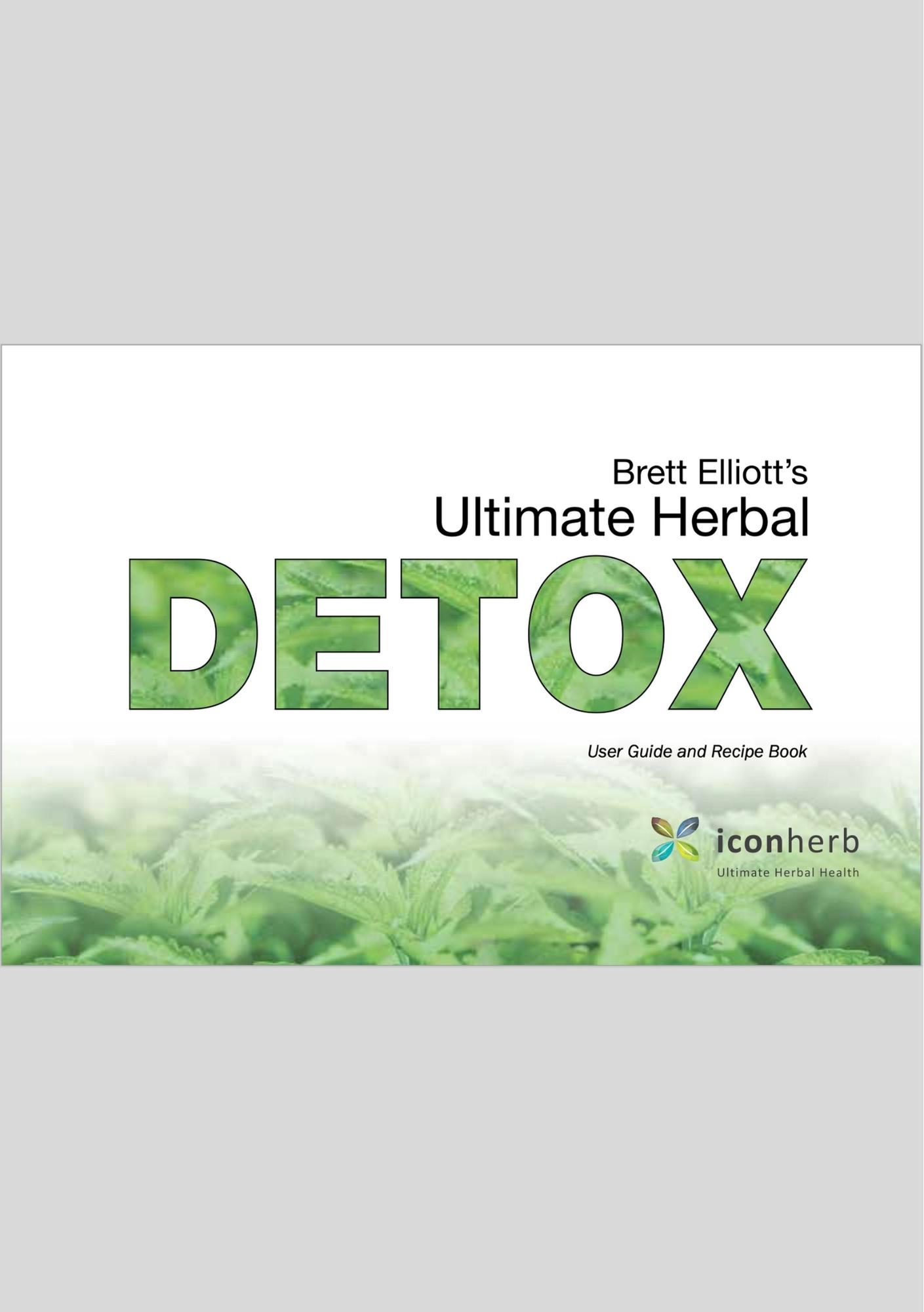
This image is property of www.brettelliott.com.
3. Choosing the Right Herbs for Detox
– Researching reputable herb suppliers
When choosing herbs for detox, it is important to research and purchase from reputable herb suppliers. Look for suppliers that offer organic and sustainably sourced herbs to ensure their quality and purity. Reading customer reviews and checking for certifications can also help in selecting reliable suppliers.
– Consulting with a healthcare professional
Consulting with a healthcare professional, such as a naturopath or herbalist, is crucial when choosing the right herbs for detox. They can provide personalized advice based on your specific health needs and goals. They will consider factors such as your medical history, allergies, and any medications you may be taking to recommend suitable herbs for you.
– Common detox herbs and their benefits
Some common detox herbs and their benefits include:
- Dandelion: Supports liver function and aids in detoxification.
- Milk thistle: Protects the liver from toxins and promotes its regeneration.
- Burdock root: Purifies the blood and supports kidney function.
- Ginger: Has anti-inflammatory and digestive properties.
- Turmeric: Helps to reduce inflammation and supports liver health.
- Cilantro: Assists in heavy metal detoxification.
- Garlic: Boosts the immune system and supports detoxification.
Researching these herbs and understanding their benefits can help in choosing the right ones for your detox journey.
4. Preparing for a Herbal Detox
– Setting goals for the detox
Before starting a herbal detox, it is important to set clear goals for yourself. Determine what you hope to achieve through the detox, whether it’s improved energy levels, weight loss, or better overall health. Setting specific and achievable goals will help you stay motivated throughout the process.
– Gradually reducing caffeine and sugar intake
To prepare for a herbal detox, it is recommended to gradually reduce your caffeine and sugar intake. Caffeine and sugar can burden the liver and contribute to toxin buildup in the body. By gradually reducing these substances, you can minimize withdrawal symptoms and prepare your body for the detoxification process.
– Increasing consumption of fruits and vegetables
A balanced and nutritious diet is crucial in preparing for a herbal detox. Increase your consumption of fresh fruits and vegetables, as they are rich in vitamins, minerals, and antioxidants that support the body’s detoxification pathways. Aim to incorporate a variety of colorful produce into your meals and snacks.
– Staying hydrated
Hydration is key to any detoxification process. Drink plenty of water throughout the day to help flush out toxins and keep your body hydrated. You can also incorporate herbal teas and infused water for added flavor and detoxifying benefits.
– Planning meals and snacks
Plan your meals and snacks in advance to ensure that you are providing your body with the necessary nutrients during the detox. Incorporate whole foods, such as lean proteins, whole grains, and healthy fats, into your meals. Avoid processed foods, refined sugars, and unhealthy fats that can hinder the detoxification process.
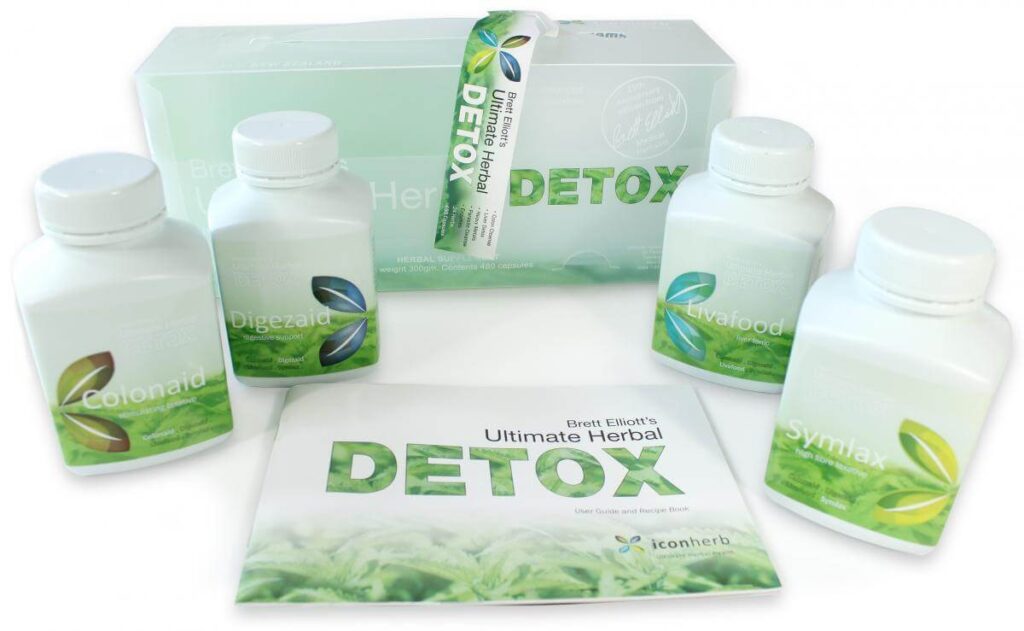
This image is property of www.brettelliott.com.
5. Step-by-Step Guide to Herbal Detox
– Creating a detox plan
Before starting a herbal detox, it is important to create a detox plan. Decide on the duration of the detox, whether it’s a few days, a week, or longer. Outline which detox methods you will incorporate, such as tea detox, juice cleanse, or herbal supplements. Having a clear plan will help you stay organized and focused throughout the detox.
– Starting with gentle detox methods
If you are new to detoxing, it is best to start with gentle detox methods to allow your body to adjust. Begin with herbal teas or infusions and gradually introduce more intense detox methods, such as juice cleanses or sweating therapies. This gradual approach will minimize any potential side effects and make the detoxification process more manageable.
– Incorporating herbal teas and infusions
Herbal teas and infusions are a great way to start a herbal detox. Choose teas that are specifically formulated for detoxification and sip on them throughout the day. Some beneficial teas include dandelion tea, green tea, chamomile tea, and peppermint tea. These teas can help to support liver function, aid digestion, and promote overall detoxification.
– Introducing herbal supplements
Once you are comfortable with herbal teas, you can consider incorporating herbal supplements into your detox routine. Consult with a healthcare professional to determine which supplements would be most beneficial for your specific needs. Some commonly used supplements for detox include milk thistle extract, turmeric capsules, and spirulina tablets.
– Monitoring progress and adjusting the detox plan
During the herbal detox, it is important to monitor your progress and listen to your body. Pay attention to how you feel physically and mentally. If you are experiencing any negative side effects or discomfort, consider adjusting the detox plan or consulting with a healthcare professional. Continuously evaluate your goals and make any necessary modifications to ensure a successful detoxification process.
6. Potential Side Effects and Safety Precautions
– Knowing the limitations of herbal detox
While herbal detox can provide many benefits, it is important to understand its limitations. Herbal detox may not be suitable for everyone, especially those with underlying health conditions or individuals taking certain medications. It is important to consult with a healthcare professional before starting a herbal detox to ensure its safety and efficacy for your specific situation.
– Possible side effects and how to manage them
Some individuals may experience side effects during a herbal detox. These side effects can include headaches, fatigue, digestive issues, or skin breakouts. It is important to manage these side effects by staying hydrated, getting plenty of rest, and practicing self-care. If side effects persist or worsen, it is advisable to seek medical advice.
– Safety precautions and contraindications
Certain individuals should exercise caution or avoid herbal detox altogether. Pregnant or breastfeeding women, individuals with liver or kidney disease, and those taking prescription medications should consult with a healthcare professional before starting a herbal detox. Additionally, individuals with allergies to specific herbs should avoid them or choose alternative detox methods.
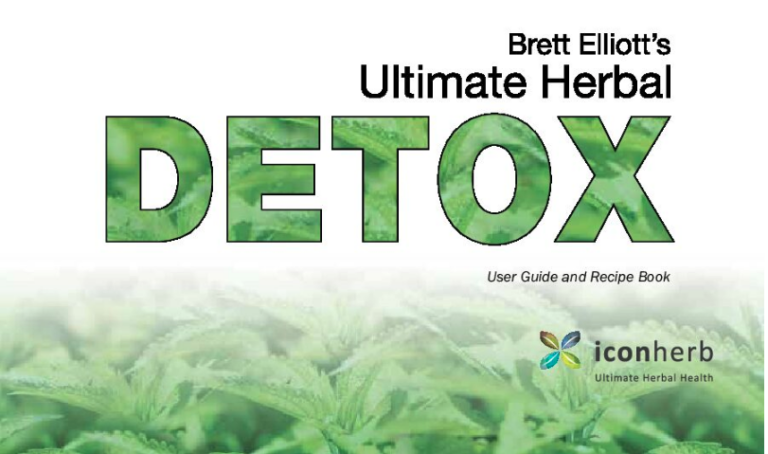
This image is property of www.brettelliott.com.
7. Frequently Asked Questions about Herbal Detox
– Can anyone do a herbal detox?
Herbal detox is generally safe for most individuals, but it is important to consider individual health conditions and medications. Consult with a healthcare professional before starting a herbal detox to ensure its suitability for your specific situation.
– How long should a herbal detox last?
The duration of a herbal detox can vary depending on individual goals and preferences. Some detox programs last for a few days, while others extend to several weeks. It is important to choose a duration that aligns with your health goals and consult with a healthcare professional for personalized advice.
– Can herbal detox help with weight loss?
Herbal detox can support weight loss by promoting the elimination of toxins and boosting overall health. However, it should be noted that weight loss results may vary for each individual, and a healthy diet and regular exercise are key factors in achieving sustainable weight loss.
– Are there any post-detox recommendations?
After completing a herbal detox, it is important to gradually reintroduce solid foods and maintain a healthy lifestyle. Focus on consuming balanced meals, staying hydrated, and practicing mindful eating. It is also advisable to continue incorporating detoxifying herbs and other holistic practices into your routine for long-term wellness.
8. Herbal Detox vs. Other Detox Methods
– Understanding the differences
Herbal detox differs from other detox methods in that it utilizes natural herbs and ingredients to support the body’s natural detoxification processes. Other detox methods may involve the use of commercial detox products, strict diet plans, or medical procedures. Herbal detox focuses on promoting overall wellness and supporting the body’s systems rather than relying on external factors.
– Comparing herbal detox to juice cleanses
While herbal detox and juice cleanses are both popular detox methods, they have notable differences. Herbal detox involves the consumption of various herbs and natural ingredients through teas, supplements, or infused water, while juice cleanses exclusively rely on fresh fruit and vegetable juices. Herbal detox offers a more varied approach and allows for a wider range of detoxifying herbs to be incorporated into the routine.
– Pros and cons of herbal detox
Pros of herbal detox include its natural approach, support for the body’s natural detoxification processes, and potential benefits for overall health and well-being. However, it may take longer to notice significant results compared to more intense detox methods, and it may not be suitable for individuals with specific health conditions or those taking certain medications. Consulting with a healthcare professional is vital to weigh the pros and cons based on individual circumstances.
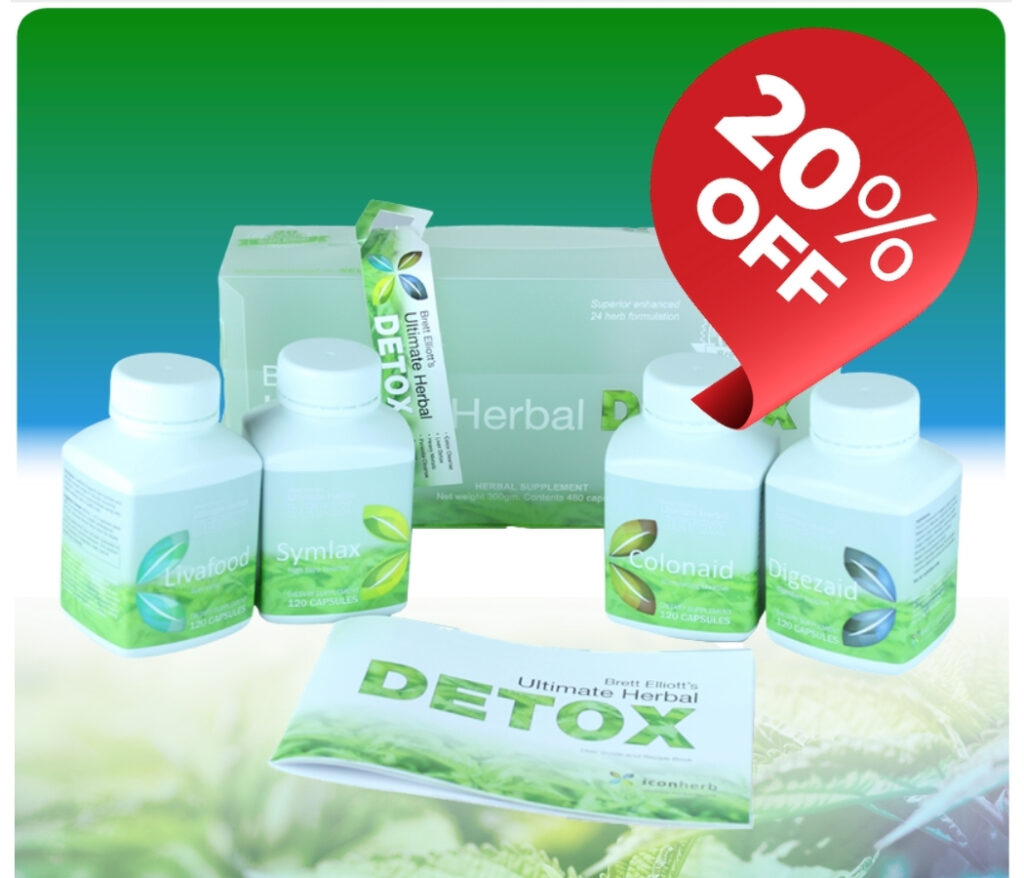
This image is property of www.brettelliott.com.
9. Incorporating Herbal Detox into a Healthy Lifestyle
– Maintaining a balanced diet
Incorporating herbal detox into a healthy lifestyle involves maintaining a balanced diet rich in whole foods. Aim to consume a variety of fruits, vegetables, lean proteins, whole grains, and healthy fats. Avoid processed foods, excessive sugars, and unhealthy fats that can impede the body’s detoxification processes.
– Regular exercise and physical activity
Regular exercise and physical activity are important components of a healthy lifestyle and can support the body’s detoxification processes. Engage in activities that you enjoy, such as walking, jogging, yoga, or weightlifting, to optimize overall health and contribute to the detoxification process.
– Stress management techniques
Stress management plays a significant role in maintaining a healthy lifestyle and supporting the body’s detoxification. Explore stress-reducing techniques such as meditation, deep breathing exercises, yoga, or engaging in hobbies that bring joy and relaxation.
– Combining herbal detox with other holistic practices
To enhance the benefits of herbal detox, consider combining it with other holistic practices. These practices may include acupuncture, massage therapy, dry brushing, or aromatherapy. These complementary therapies can further support the body’s detoxification process and overall well-being.
10. Real-Life Success Stories
– Testimonials from individuals who have tried herbal detox
Real-life success stories can inspire and motivate individuals considering herbal detox. Testimonials from individuals who have experienced the benefits of herbal detox can provide insights into their detox journey and outcomes. These stories can help individuals make informed decisions and set realistic expectations for their own detox experience.
– Their experiences and outcomes
Real-life success stories highlight the various experiences and outcomes individuals have had through herbal detox. These experiences can range from increased energy levels, improved digestion, reduction in symptoms related to specific health conditions, weight loss, clearer skin, and a general sense of well-being. Each individual’s journey is unique, and outcomes can vary, but these stories can provide a glimpse into the potential benefits of herbal detox.
In conclusion, herbal detox is a natural and holistic approach to cleanse and support the body’s detoxification processes. With proper planning, choosing the right herbs, and incorporating herbal detox into a healthy lifestyle, individuals can experience the potential benefits of improved overall health and well-being. However, it is important to consult with a healthcare professional before starting a herbal detox and be aware of any potential side effects or contraindications. With perseverance and a personalized approach, herbal detox can be a valuable addition to a wellness routine.
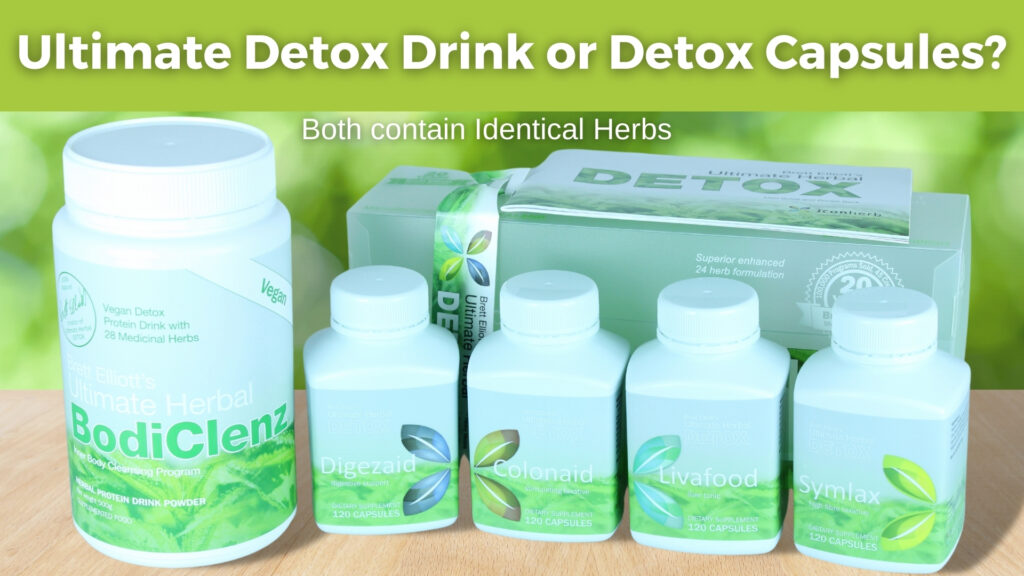
This image is property of www.brettelliott.com.

